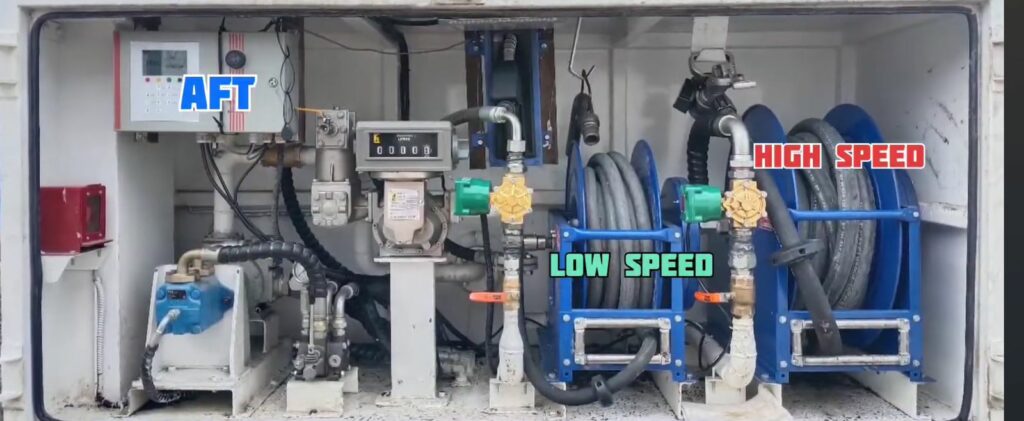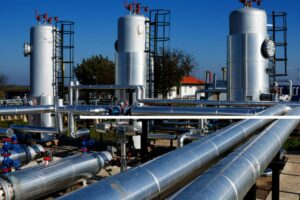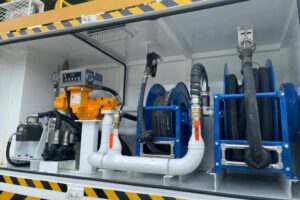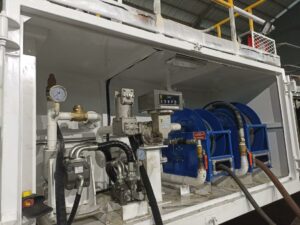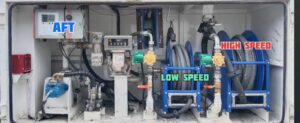Introduction: Why Flow Meters Matter More Than Ever
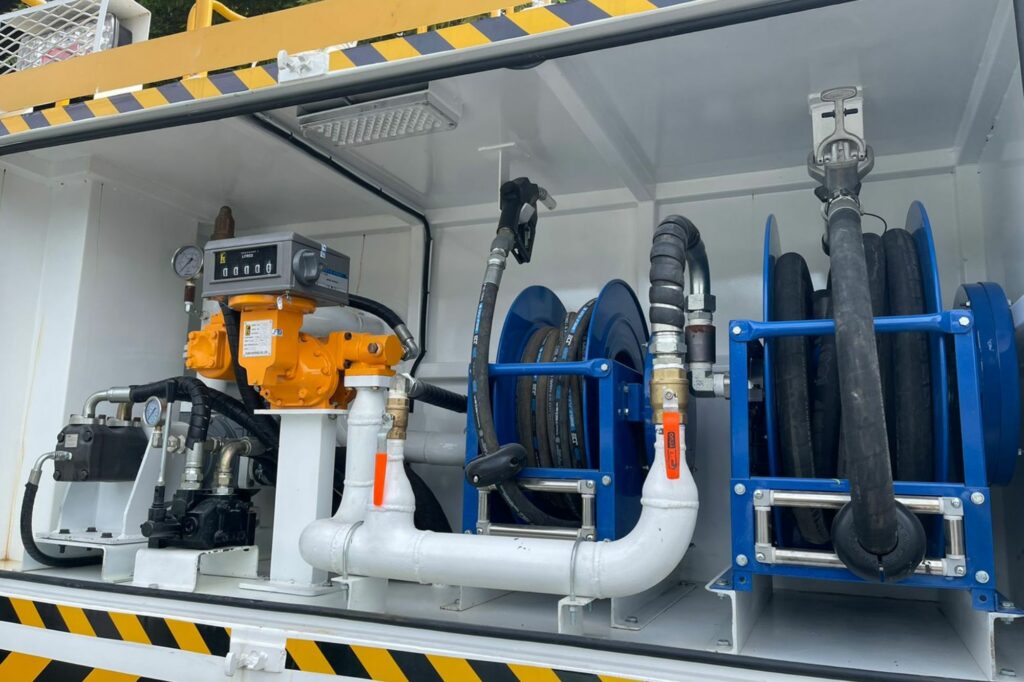
Whether you’re managing fuel at a terminal, batching chemicals in a plant, or monitoring water usage in agriculture, accurate flow measurement is essential. That’s where the flow meter comes in—one of the most vital instruments in the industrial world.
But what is a flow meter, really? How does it work? Why do some cost hundreds and others thousands? This guide breaks it down in plain language—with professional insight, real-world applications, and the unique advantages of choosing Flow Controls Metering LLC, your trusted source for precision flow meters and accessories.
What is a Flow Meter?
At its core, a flow meter is a device that measures the amount of liquid, gas, or vapor moving through a pipe or conduit. The measurement can be:
- Volumetric Flow (e.g., gallons per minute)
- Mass Flow (e.g., kilograms per hour)
- Velocity-Based (e.g., meters per second)
Flow meters play a crucial role in:
- Custody transfer of fuels and chemicals
- Water distribution and irrigation
- Food & beverage manufacturing
- Pharmaceutical dosing
- HVAC and utility metering
- Oil and gas production
Types of Flow Meters (Explained Simply)
Different applications call for different meter technologies. Here’s a breakdown of the most common types used across industries:
1. Positive Displacement Flow Meters
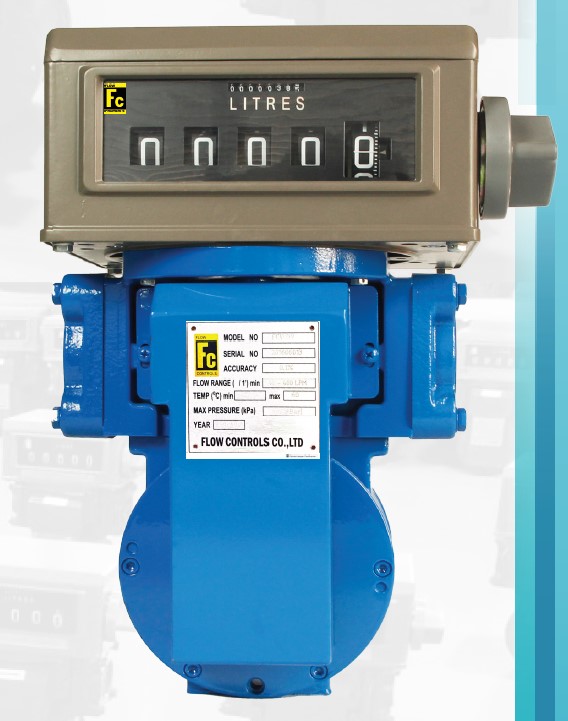
These meters mechanically divide fluid into fixed volumes and count how many units pass through.
Best for: Custody transfer of fuels, oils, and other high-viscosity fluids.
Example: Flow Controls FCM80 Series
Pros: Extremely accurate, no power required
Cons: Mechanical wear over time
2. Turbine Flow Meters
A rotor spins in the flow; the speed of rotation correlates with flow rate.
Best for: Clean, low-viscosity liquids like water or solvents
Pros: High rangeability, cost-effective
Cons: Not suitable for dirty or viscous fluids
3. Electromagnetic Flow Meters (Magmeters)
Measure flow by using Faraday’s law of induction. No moving parts.
Best for: Conductive liquids (water, slurries, chemicals)
Example: Flow Controls FCE Series
Pros: Maintenance-free, no pressure drop
Cons: Doesn’t work with non-conductive fluids (e.g., oil)
4. Ultrasonic Flow Meters
Use sound waves to measure velocity and calculate flow.
Best for: Water, gases, non-invasive installs
Pros: Clamp-on options, great for retrofits
Cons: Less accurate on turbulent or aerated flow
5. Coriolis Mass Flow Meters
Measure actual mass flow by sensing deflection in vibrating tubes.
Best for: Chemical batching, hygienic food/pharma applications
Pros: Direct mass measurement
Cons: High initial cost
Why Flow Meters Are Crucial to Your Operation
A flow meter does more than count gallons—it protects your business. Here’s how:
| Benefit | How It Helps |
|---|---|
| 💸 Accurate Billing | Essential for custody transfer and invoicing |
| ⚖️ Process Control | Maintains quality, consistency, and efficiency |
| 📊 Data Reporting | Enables real-time monitoring and analytics |
| 🧪 Compliance | Meets regulatory standards (EPA, ISO, API, FDA) |
| 🛠️ Maintenance Prediction | Detects system abnormalities before failure |
Real-World Examples
🚛 Fuel Depot in California
Installed FCM80 PD Meters with RS485. Result:
- Improved billing accuracy by 0.5%
- Reduced downtime by 40%
- Integrated with cloud dashboard for monitoring
🌾 Agricultural Irrigation in Central Valley
Used electromagnetic meters (FCE series) to monitor water usage. Result:
- Qualified for state rebates
- Reduced water waste by 17%
- Automated pump shutoff during overflows
How to Choose the Right Flow Meter
Making the wrong choice can be costly. Here’s what to consider:
1. Fluid Type
- Clean vs. dirty
- Conductive vs. non-conductive
- Viscosity and temperature
2. Flow Rate and Range
Choose a meter that operates within 20–80% of its full-scale capacity for best accuracy.
3. Accuracy Requirements
For custody transfer, look for ±0.1%–±0.2%. For monitoring, ±1% might suffice.
4. Installation Environment
- Space constraints
- Vertical vs. horizontal pipe
- Hazardous area rating (ATEX, UL)
5. Output and Connectivity
Need analog (4–20mA), pulse, or digital (RS485, Modbus, HART)?
Flow Controls meters come ready to integrate with PLCs, SCADA, or cloud dashboards.
Benefits of Buying from Flow Controls Metering LLC
We don’t just sell meters—we deliver precision, reliability, and partnership.
🔧 Engineered for Accuracy
All Flow Controls meters are factory-calibrated and verified on ISO-certified benches, ensuring performance out-of-the-box.
🌐 Global Reach, Local Support
Through our California headquarters and partners like Ferindo Energi Instrumen (ferindo.id), we serve clients worldwide with dependable lead times and personalized service.
🧠 Smart-Ready Meters
Need remote monitoring or real-time alerts? Our RS485-enabled meters integrate easily with modern automation systems.
📋 Compliance-Driven Design
All Flow Controls products meet or exceed international standards including:
- API 2540
- ISO 17025
- OIML R117
- ASTM D1250
FAQs: What People Ask About Flow Meters
Q: Do all flow meters need calibration?
A: Yes. Over time, environmental conditions and wear can affect accuracy. Flow Controls provides field calibration services and digital diagnostics.
Q: What’s the lifespan of a flow meter?
A: With proper maintenance and calibration, 10–15 years is typical for Flow Controls meters.
Q: Can I use one meter for multiple fluids?
A: Technically yes, but it depends on compatibility and calibration. Always consult with our engineering team first.
Future Trends in Flow Meter Technology
- AI Predictive Diagnostics
- Cloud-based flow analytics
- Battery-powered wireless meters
- NFC-enabled calibration sync
Flow Controls is actively innovating in these areas to provide meters that are not just accurate, but intelligent.
Final Thoughts: Why a Flow Meter Is the Smartest Investment You Can Make
A flow meter might seem like a small part of a massive system—but it’s one of the most critical components. It controls how you measure, manage, and optimize your resources. Whether you’re tracking water in a vineyard or diesel at a distribution hub, precision matters.
That’s why thousands of engineers and procurement managers choose Flow Controls Metering LLC—because we combine expertise, certified accuracy, and lasting value.
🔗 Ready to Learn More?
Visit fcmeter.com to explore:
- Our complete range of PD, Electromagnetic, and Turbine meters
- Custom applications and OEM support
- Calibration services and RS485 monitoring dashboards
- Partnerships through ferindo.id in Asia-Pacific
📞 Contact Flow Controls
Flow Controls Metering LLC: Precision in Every Drop™

